Fueling Your Body for Fitness: Nutrition Tips and Tricks
Whether you are an athlete, gym-goer or just looking to stay healthy and active, the role of nutrition in your fitness journey cannot be understated. From powering your workouts to aiding recovery, what you eat plays a crucial role in determining how your body performs. In this guide, we will share nutrition tips and tricks to help you fuel your body for optimal fitness performance, no matter your goals. Let’s dive in!
The Importance of Proper Nutrition for Fitness

As an athlete or fitness enthusiast, you likely know the importance of exercise when it comes to achieving your fitness goals. However, did you know that nutrition plays a critical role in reaching your peak performance as well?
Fueling your body with the right nutrients at the right times can significantly impact your energy levels, muscle growth, and overall health. Without proper nutrition, you may find it challenging to perform at your best or even experience setbacks in your fitness journey.
When it comes to nutrition for fitness, it’s important to focus on a balanced diet that incorporates all of the macronutrients, carbohydrates, proteins, and fats. Additionally, it’s vital to consider the role of micronutrients such as vitamins and minerals in your performance and overall health.
By paying attention to your nutrition and eating habits, you can provide your body with the nutrients it needs to perform at its highest potential. So, make sure to prioritize your nutrition as part of your fitness routine and give your body the fuel it needs to thrive.
The Macronutrients: Protein, Carbohydrates, and Fats
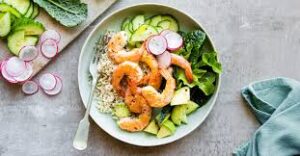
When it comes to nutrition for fitness, the macronutrients – protein, carbohydrates, and fats – are essential for optimal performance.
Protein is a critical macronutrient for muscle building and repair. It is essential for recovery after exercise and helps prevent muscle breakdown. Good sources of protein include lean meats, fish, eggs, dairy, and plant-based sources such as legumes and nuts.
Carbohydrates are the primary fuel source for the body, particularly during high-intensity workouts. They provide the energy necessary for performance and can also aid in recovery after exercise. Whole-grain sources such as brown rice, quinoa, and whole-grain bread are excellent choices for carbohydrates.
Fats also play an essential role in the body. They are necessary for hormone production, cellular function, and energy production during long-duration exercise. Healthy sources of fats include avocados, nuts, seeds, olive oil, and fatty fish.
While it is essential to include all three macronutrients in your diet, the optimal ratios will depend on individual goals, preferences, and workout routines. A registered dietitian can help determine the best macronutrient ratios for your needs.
Remember that it is crucial to focus on quality sources of macronutrients rather than just quantity. A well-balanced diet will help support optimal fitness performance and overall health.
Micronutrients and their Role in Performance
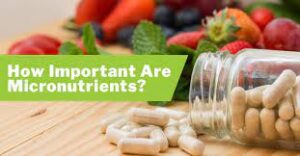
While macronutrients such as protein, carbohydrates, and fats get a lot of attention in the fitness world, micronutrients are just as important for optimal performance. Micronutrients include vitamins and minerals, and they play a vital role in maintaining the health of our bodies and keeping our energy levels up.
Vitamins are essential for many bodily functions, including the immune system, the nervous system, and energy metabolism. For example, vitamin C is known for its immune-boosting properties, while B vitamins help to convert food into energy. Minerals, on the other hand, are crucial for bone health, muscle function, and maintaining fluid balance in the body. For example, calcium is essential for strong bones, and iron is needed to transport oxygen to the muscles.
To ensure that you’re getting all the micronutrients your body needs, it’s important to eat a varied diet that includes plenty of fruits, vegetables, whole grains, and lean proteins. Some specific micronutrients to focus on include:
- Vitamin D: This vitamin is crucial for bone health, as well as immune function and muscle strength. While some foods like fatty fish and fortified milk contain vitamin D, the best source is sunlight.
- Magnesium: Magnesium plays a role in over 300 bodily functions, including muscle and nerve function. Foods like nuts, whole grains, and leafy greens are good sources of magnesium.
- Iron: Iron is needed to produce red blood cells, which transport oxygen to the muscles. Good sources of iron include lean meats, dark leafy greens, and beans.
If you’re not getting enough micronutrients from your diet alone, a multivitamin can be a good way to fill in the gaps. Just make sure to choose a high-quality supplement that includes all the essential vitamins and minerals.
In summary, while macronutrients get a lot of attention in the fitness world, micronutrients are just as important for optimal performance. Make sure to eat a varied diet that includes plenty of fruits, vegetables, whole grains, and lean proteins to ensure you’re getting all the essential vitamins and minerals your body needs.
Pre-Workout Nutrition: What to Eat Before You Hit the Gym
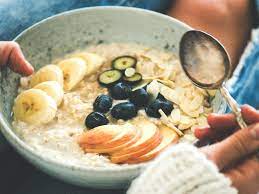
Fueling your body before a workout is crucial for optimal performance. Not only does it give you the energy you need to power through your exercises, but it also aids in muscle recovery and growth. Here are some nutrition tips to help you fuel your body before you hit the gym.
- Focus on Carbohydrates:
Carbohydrates are the primary fuel source for your body during exercise. Consuming complex carbohydrates before your workout will provide you with a steady stream of energy. Examples of complex carbohydrates include brown rice, sweet potatoes, and whole-grain bread. - Don’t Forget Protein:
Consuming protein before your workout can help to minimize muscle breakdown and improve muscle recovery. Opt for easily digestible sources of protein such as chicken, fish, or a protein shake. - Timing is Key:
Try to consume your pre-workout meal 2-3 hours before your workout. This will allow your body enough time to digest the food and convert it into energy. - Keep it Simple:
Avoid consuming foods that are high in fat or fiber before your workout, as they can slow down digestion and cause discomfort. Stick to simple, easily digestible foods that are low in fat and fiber. - Hydration is Essential:
Make sure to hydrate before your workout by drinking water or a sports drink. Dehydration can negatively impact your performance and lead to muscle cramps.
Some pre-workout snack ideas include:
- A banana and almond butter
- Greek yogurt with berries and granola
- Oatmeal with banana and honey
- Rice cakes with avocado and turkey
Remember, everyone’s body is different, and it’s essential to find what works best for you. Experiment with different foods and timing to determine the optimal pre-workout nutrition for your body. By fueling your body properly before exercise, you’ll be able to power through your workouts and achieve your fitness goals.
Post-Workout Nutrition: What to Eat After a Tough Workout
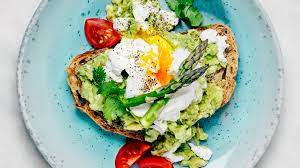
Congratulations! You’ve completed your workout and are now on your way to building a stronger and healthier body. But don’t celebrate just yet – your work isn’t quite done. Proper post-workout nutrition is crucial to aid in recovery and help your body perform at its best for your next workout.
The key to post-workout nutrition is timing. You’ll want to refuel your body within 30 minutes of finishing your workout to maximize muscle recovery and replenish glycogen stores. Here are some nutrient-dense foods to consider:
- Protein: After exercise, your body needs protein to rebuild and repair muscle tissue. Aim for 20-30 grams of protein within the first 30 minutes post-workout. Some great sources include chicken, eggs, tuna, salmon, or protein powder in a shake.
- Carbohydrates: Carbs help replenish the glycogen stores in your muscles, which can become depleted during exercise. Opt for complex carbs such as sweet potatoes, quinoa, or brown rice for sustained energy. Fruit is also a great option for quick carbs.
- Healthy fats: Fats are important for hormone production and cell function. Try adding some avocado or nuts to your post-workout meal for healthy fats.
- Water: Rehydrating after exercise is key to avoiding muscle cramps and keeping your body functioning properly. Aim to drink at least 8 ounces of water post-workout and continue to hydrate throughout the day.
Keep in mind that everyone’s post-workout needs will vary depending on the type of workout, intensity, and individual needs. If you’re unsure about what to eat, consider working with a registered dietitian to create a personalized nutrition plan.
Remember, fueling your body properly is just as important as the workout itself. By providing your body with the nutrients it needs, you’ll be on your way to optimal performance and a stronger, healthier you.
Hydration: The Importance of Staying Hydrated During Exercise
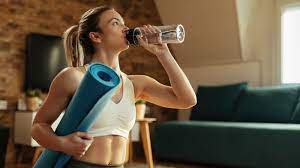
Proper hydration is crucial for athletes and fitness enthusiasts alike. It’s essential to drink enough fluids to replace the fluids lost during exercise to prevent dehydration and ensure optimal performance.
Dehydration can lead to decreased endurance, increased heart rate, and increased body temperature. In extreme cases, it can even lead to heatstroke and hospitalization. The severity of dehydration can vary based on the individual’s age, fitness level, and intensity of the workout.
So, how much water should you drink during exercise? The general recommendation is to drink at least 16-20 ounces of water 2 hours before exercise, and then drink 8-10 ounces of water every 10-20 minutes during exercise. However, this recommendation can vary depending on individual needs and the intensity of the workout.
In addition to water, it’s also important to replenish electrolytes lost through sweat, such as sodium, potassium, and magnesium. Sports drinks or electrolyte supplements can be beneficial for intense workouts lasting longer than an hour.
It’s also important to monitor the color of your urine. Urine that is light yellow or clear indicates proper hydration, while dark yellow or amber-colored urine indicates dehydration.
Remember, proper hydration is key to optimal performance and preventing dehydration. So, don’t forget to drink plenty of fluids before, during, and after your workouts!
Supplements: Do They Work and Should You Use Them?

When it comes to supplements, there is no clear-cut answer as to whether or not they are effective. Some people swear by them, while others see no benefit at all. It ultimately comes down to individual factors such as diet, exercise regimen, and genetics.
However, some supplements have been shown to have potential benefits for fitness performance. These include:
- Creatine: A supplement that can help increase muscle strength and power, especially during high-intensity exercises.
- Caffeine: A natural stimulant that can improve endurance and performance during exercise.
- Beta-alanine: An amino acid that can help increase muscle endurance and delay fatigue.
- Branched-chain amino acids (BCAAs): Amino acids that can help reduce muscle damage and promote muscle protein synthesis.
While these supplements can potentially provide benefits for fitness performance, it is important to note that they are not a replacement for a healthy diet and proper exercise regimen. Some experts argue that getting nutrients from whole foods is a better option than relying on supplements.
Additionally, not all supplements are created equal, and some may have harmful side effects. It is important to do thorough research and consult with a healthcare professional before adding any supplements to your routine.
Ultimately, supplements should be seen as a potential tool to enhance fitness performance, but should not be relied upon as the sole solution. A balanced diet and consistent exercise regimen are the most important factors in achieving optimal fitness performance.
Creating a Meal Plan for Optimal Fitness Performance

Eating a healthy and well-balanced diet is important for everyone, but it is especially crucial for individuals who engage in regular physical activity. When you exercise, your body needs more energy and nutrients to fuel your workouts and help your muscles recover and grow.
To create a meal plan for optimal fitness performance, start by assessing your personal nutrition needs based on your body composition, fitness goals, and daily activity level. A balanced diet for active individuals should consist of a variety of whole foods that provide all the necessary macronutrients and micronutrients.
The following are some tips to help you create a meal plan that fuels your body for fitness:
- Determine your calorie needs: Your calorie needs will depend on factors such as your age, gender, weight, height, and activity level. Use an online calculator to determine your daily calorie needs, and adjust it based on your fitness goals.
- Include a variety of nutrient-dense foods: Aim to include a variety of whole foods in your diet, such as lean proteins, complex carbohydrates, healthy fats, fruits, vegetables, and whole grains. These foods provide essential vitamins, minerals, and fiber to support overall health and performance.
- Timing is everything: Eat smaller, more frequent meals throughout the day to keep your energy levels stable and avoid hunger cravings. Aim to eat a balanced meal or snack every three to four hours to keep your metabolism running strong.
- Plan your meals in advance: Meal planning can help you stay on track with your fitness goals and prevent unhealthy eating choices. Choose recipes that are easy to prepare and pack meals and snacks in advance to take with you on-the-go.
- Monitor your progress: Track your food intake and monitor your progress regularly to see if your meal plan is working for you. Adjust your meal plan as needed to ensure you are getting enough nutrients to support your fitness goals.
In summary, creating a meal plan for optimal fitness performance requires careful planning, a balanced diet, and monitoring your progress. By following these tips and incorporating nutrient-dense foods into your meals and snacks, you can fuel your body to perform at its best during your workouts and help you achieve your fitness goals.
